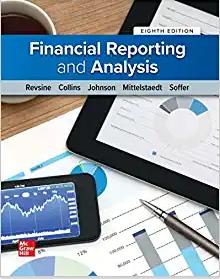On March 14, 2019, Core Molding Technologies, Inc. filed a Form 8-K disclosing an amendment to one
Question:
On March 14, 2019, Core Molding Technologies, Inc. filed a Form 8-K disclosing an amendment to one of its borrowing agreements as follows:
(T)he Borrowers and the Lenders agreed to modify certain terms of the A/R Credit Agreement. These modifications included (1) implementation of an availability block on the U.S. Revolving Loans reducing availability from $40,000,000 to $32,500,000, (2) modification to the definition of EBITDA to add back certain one-time expenses, (3) waiver of non compliance with the leverage covenant as of December 31, 2018 and modification of the leverage ratio definition and covenant to eliminate testing of the leverage ratio until December 31, 2019, (4) waiver of non-compliance with the fixed charge covenant as of December 31, 2018 and modification of the fixed charge coverage ratio definition and covenant requirement, (5) implementing a maximum capital expenditure spend of $7,500,000 during the first six months of 2019 and $12,500,000 for the full year 2019, (6) increase the applicable margin for existing term and revolving loans, (7) increase in the commitment fees on any unused U.S. Revolving Loans.
Required:
1. What is a minimum fixed charge coverage ratio, and what purpose does it serve in a company’s loan agreements?
2. Why would Core Molding have agreed to restrictions on its activities?
3. In general terms, explain how a company such as Core Molding can alter its accounting choices to avoid violating debt covenants tied to financial statement numbers.
4. Why would Core Molding’s lender have waived the covenant violations and redefined how EBITDA is computed?
Step by Step Answer:

Financial Reporting And Analysis
ISBN: 9781260247848
8th Edition
Authors: Lawrence Revsine, Daniel Collins, Bruce Johnson, Fred Mittelstaedt, Leonard Soffer





